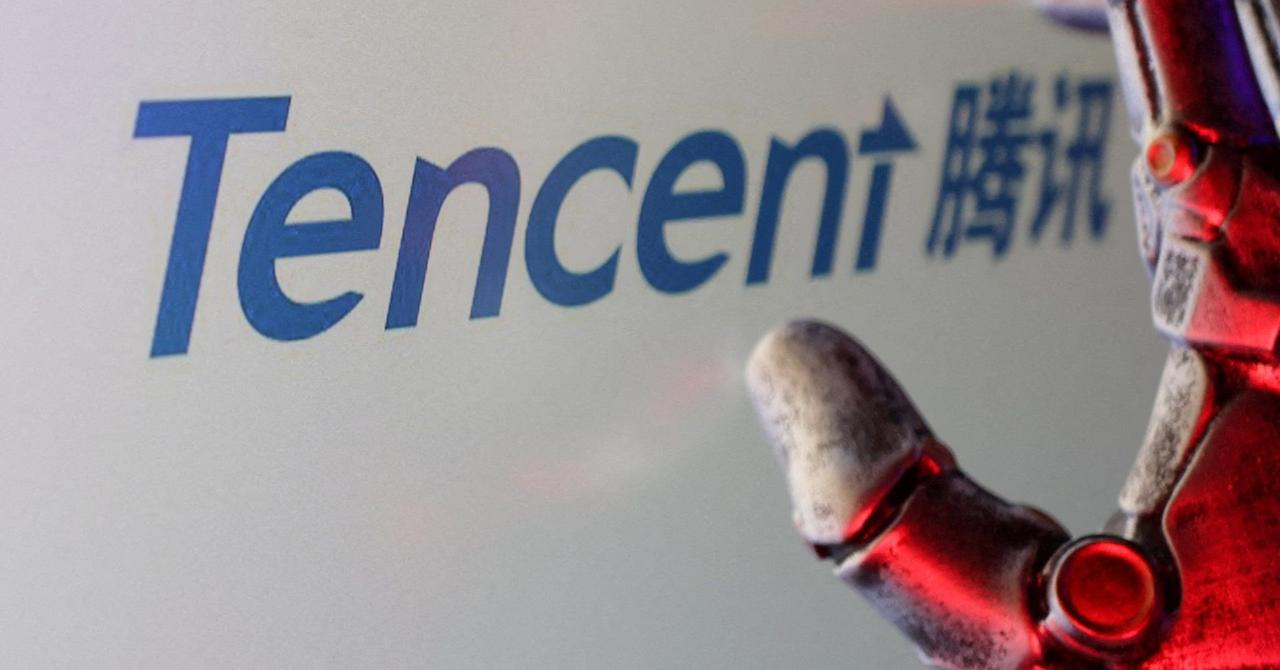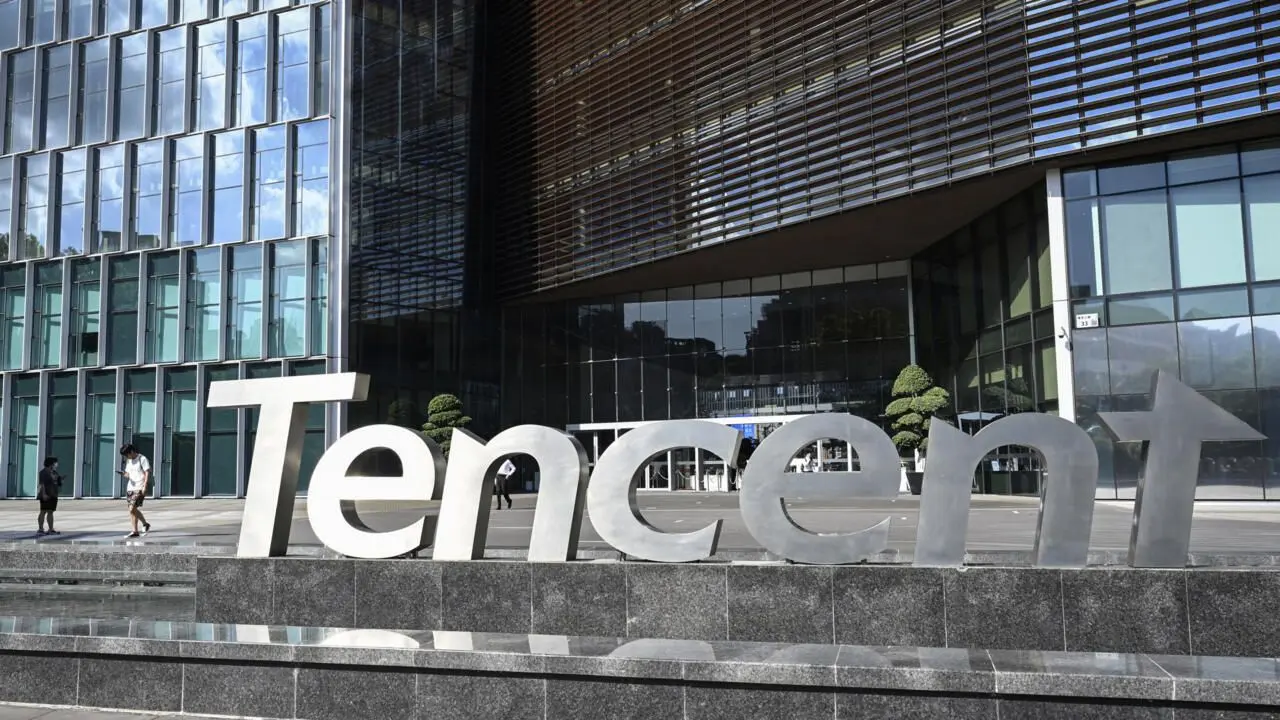Tencent Unveils Open-Source AI Models for 3D Content Generation
2 Sources
2 Sources
[1]
Tencent Touts Open-Source AI Models to Turn Text into 3D Visuals
Tencent Holdings Ltd. released new AI services that turn text or images into 3D visuals and graphics, the latest in a series of products to emerge from big tech firms since DeepSeek galvanized Chinese and US artificial intelligence development. Tencent's five new 3D-content generators are built atop its Hunyuan3D-2.0 model, all of which it intends to open-source to users, the company said in a statement. They will help power an upgraded version of Tencent's proprietary 3D engine for games and other content.
[2]
Tencent expands AI push with open-source 3D generation tools
BEIJING, March 18 (Reuters) - Tech giant Tencent (0700.HK), opens new tab on Tuesday unveiled a suite of new artificial intelligence tools capable of converting text and images into 3D visuals in the latest example of growing Chinese momentum in the field of generative AI. Tencent released five open-source models based on its Hunyuan3D-2.0 technology, it announced in a statement, including so-called "turbo" versions it said can generate 3D visuals within 30 seconds while maintaining high precision and quality. The launch comes as Chinese firms, notably led by AI startup DeepSeek, have begun challenging U.S. dominance in the field by offering comparable or superior performance at significantly lower costs. Tencent's 3D initiative follows its February launch of Hunyuan Turbo S, a large language model that the company claims processes queries faster than DeepSeek's flagship R1 model. Tencent first introduced its 3D AI models in November 2024, primarily targeting designers and game developers as it sought to position itself as an early mover in text-to-3D and image-to-3D generation capabilities. The company launched Hunyuan3D-2.0 in January, claiming it outperforms leading industry models in text consistency, geometric accuracy, and visual quality benchmarks. TikTok parent company ByteDance is also pushing into text-to-3D and image-to-3D field with its VeOmniverse model released in 2024. Unlike Tencent's offering, however, it remains proprietary. Reporting by Liam Mo and Brenda Goh; Editing by Joe Bavier Our Standards: The Thomson Reuters Trust Principles., opens new tab Suggested Topics:Artificial Intelligence
Share
Share
Copy Link
Tencent releases five new AI models capable of turning text and images into 3D visuals, expanding its presence in the competitive AI landscape dominated by companies like DeepSeek.

Tencent's Leap into 3D AI Generation
Tencent Holdings Ltd., the Chinese tech giant, has made a significant move in the artificial intelligence arena by unveiling a suite of new AI tools designed to convert text and images into 3D visuals. This development marks Tencent's latest effort to compete in the rapidly evolving field of generative AI, where Chinese firms are increasingly challenging U.S. dominance
1
.The Hunyuan3D-2.0 Technology
At the heart of Tencent's new offering is the Hunyuan3D-2.0 model, upon which five new 3D-content generators are built. These models are being released as open-source, allowing users to access and potentially build upon the technology
1
. The suite includes "turbo" versions that Tencent claims can generate high-quality 3D visuals within 30 seconds, maintaining both precision and quality2
.Tencent's AI Journey
This launch is not Tencent's first foray into AI. In February, the company introduced Hunyuan Turbo S, a large language model that reportedly processes queries faster than DeepSeek's flagship R1 model. Tencent's journey in 3D AI began in November 2024 with the initial introduction of 3D AI models, primarily targeting designers and game developers
2
.Competitive Landscape
The release of these open-source models comes at a time when Chinese firms, notably led by AI startup DeepSeek, are making significant strides in the field of generative AI. These companies are offering comparable or superior performance at significantly lower costs, challenging the traditional U.S. dominance in the sector
2
.Applications and Implications
Tencent's new AI tools are expected to power an upgraded version of the company's proprietary 3D engine, which is used for games and other content creation
1
. This move could potentially revolutionize the way 3D content is created, making it faster and more accessible to a wider range of users.Related Stories
Industry Comparisons
While Tencent is making its 3D AI models open-source, not all companies are following suit. ByteDance, the parent company of TikTok, has also entered the text-to-3D and image-to-3D field with its VeOmniverse model, released in 2024. However, unlike Tencent's offering, ByteDance's model remains proprietary
2
.Future Prospects
As the AI landscape continues to evolve, Tencent's open-source approach could potentially accelerate innovation in the field of 3D content generation. The company claims that Hunyuan3D-2.0 outperforms leading industry models in text consistency, geometric accuracy, and visual quality benchmarks
2
. If these claims hold true, it could signify a significant leap forward in AI-generated 3D content, with far-reaching implications for industries ranging from gaming to design and beyond.References
Summarized by
Navi
Related Stories
Recent Highlights
1
ByteDance's Seedance 2.0 AI video generator triggers copyright infringement battle with Hollywood
Policy and Regulation

2
Demis Hassabis predicts AGI in 5-8 years, sees new golden era transforming medicine and science
Technology

3
Nvidia and Meta forge massive chip deal as computing power demands reshape AI infrastructure
Technology








